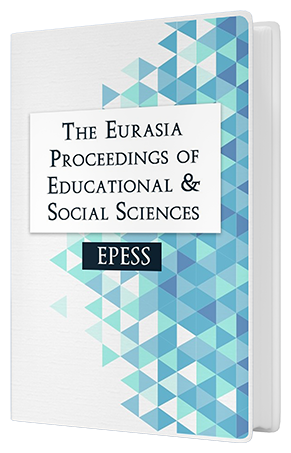MISO – Motion in the Science Ocean Project Based Learning Using Mobile Devices – Synthesis of Biodiesel by Homogeneous or Heterogeneous Catalysis
Keywords:
Project based learning, Mobile devices, BiodieselAbstract
Six European schools from very different parts of Europe (Agrupamento de Escolas da Maia - Portugal, Anne-Frank-Schule Bargteheide – Germany, Özel Bilkent Lisesi – Turkey, Sandsli VGS – Norway, Institut Pau Vila – Spain and Liceul Teoretic Iancu C. Vissarion - Romenia, have developed an Erasmus+ project for Exchange of Good Practices, MISO, in order to increase student interest in science, foster the use of ICT with different applications for experiments, share experiences between teachers and students and collaboratively examined new approaches to teaching and learning of science (E-learning Tools). In recent years the automobile industry has been looking for alternatives to reduce the consumption of fossil fuels. One of the solutions can be vehicles containing a normal internal combustion engine that uses the biodiesel as combustion This research study used Project Based Learning as pedagogical methodology, through the use of mobile devices and was done by students of Chemistry of 12th grade. Students aimed to synthesize Biodiesel by transesterification of refined soybean oil with methanol by basic catalysis using laboratory materials. They studied the effect of the amount of catalyst on the synthesis of biodiesel, they evaluated the acidity index of biodiesel and they also studied the miscibility of the produts obtained with ethanol and hexane. FT-IR was used to monitor the reaction. Mobile devices were used during the project to take photos and to record videos of the experimental procedure. Different type of APPS (Magisto, Animoto, Popplet and Scapple) were used to report the results. This work showed that transesterification is a simple, easy and economically accessible method of synthesizing biodiesel. This project enabled students to deepen and apply their previous and new learning, develop their critical thinking, their creativity and communication, increase their autonomy, organizational management of work, interpersonal relations and motivation for the learning.Downloads
Published
Issue
Section
License
Copyright (c) 2019 The Eurasia Proceedings of Educational and Social Sciences

This work is licensed under a Creative Commons Attribution-NonCommercial-ShareAlike 4.0 International License.
The articles may be used for research, teaching, and private study purposes. Any substantial or systematic reproduction, redistribution, reselling, loan, sub-licensing, systematic supply, or distribution in any form to anyone is expressly forbidden. Authors alone are responsible for the contents of their articles. The journal owns the copyright of the articles. The publisher shall not be liable for any loss, actions, claims, proceedings, demand, or costs or damages whatsoever or howsoever caused arising directly or indirectly in connection with or arising out of the use of the research material. All authors are requested to disclose any actual or potential conflict of interest including any financial, personal or other relationships with other people or organizations regarding the submitted work.




